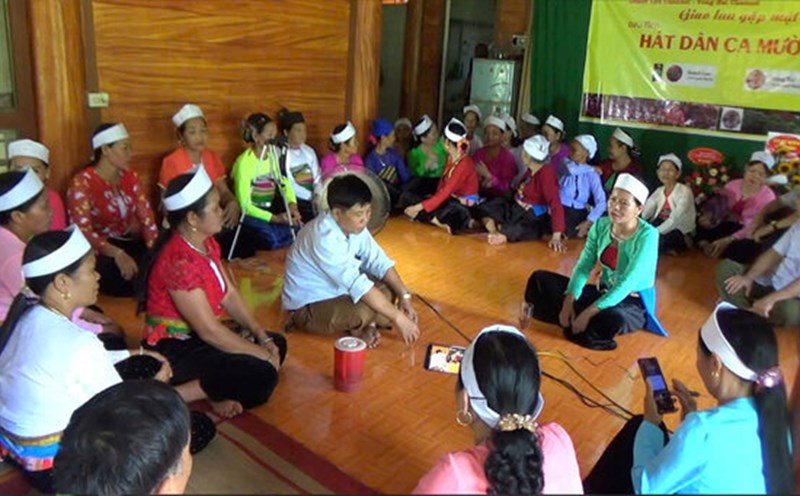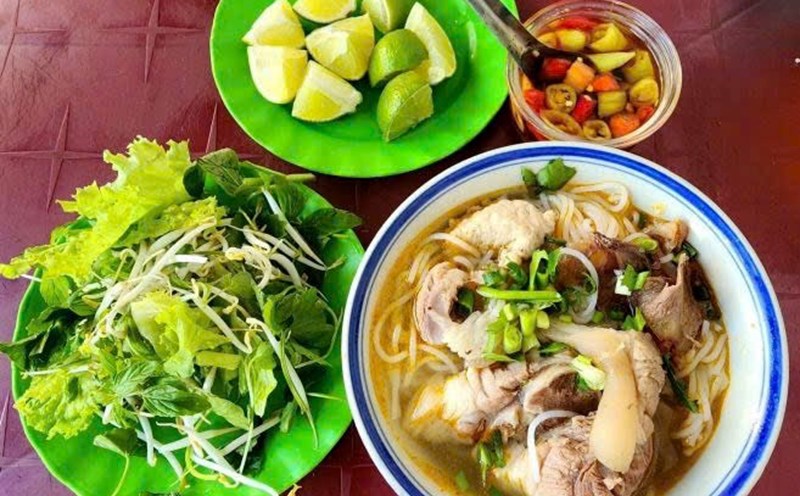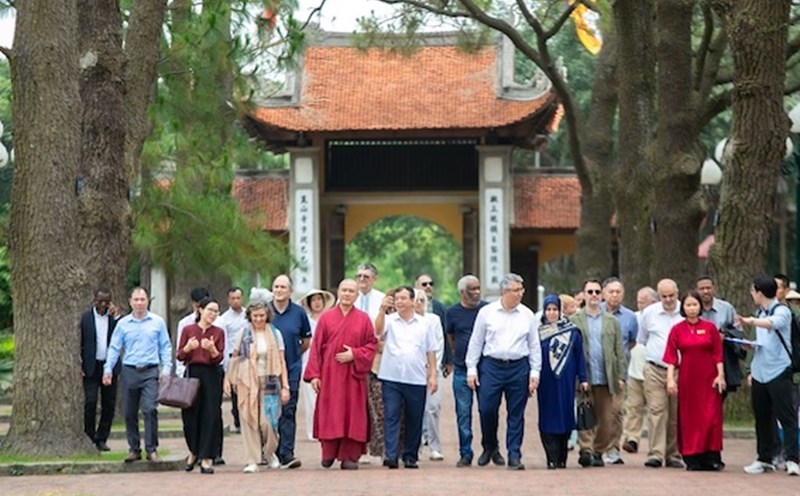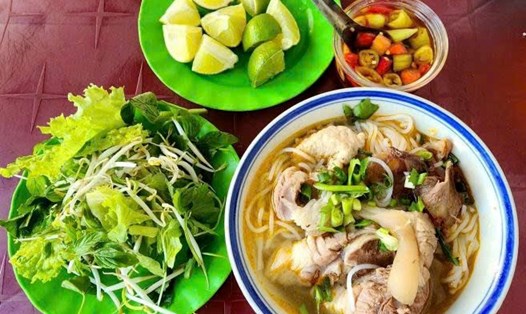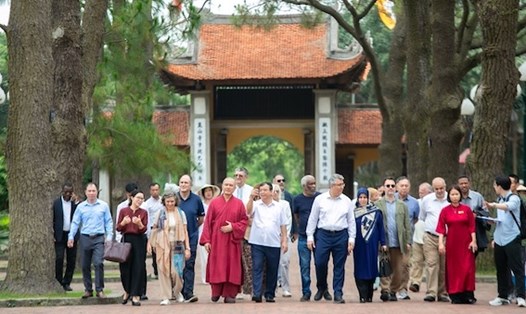In the afternoon of 12.7 (Vietnam time), at the 47th meeting of the World Heritage Committee (UNESCO), which took place from 06-16 July in Paris, the Republic of France, Professor Nikolay Nenov (Bulgaria) - the president of the meeting officially recognized the relics complex and the Yen Tu - Vinh Nghiem, Ke Son, Kiep Bac (in Quang Ninh provinces, Quang Ninh and Hai Phong provinces)
This is the 9th World Heritage Site in Vietnam recognized by UNESCO and the 2nd Inter-provincial World Heritage Site in Vietnam, along with the World Heritage Site of Ha Long Bay - Cat Ba archipelago (in Quang Ninh province and Hai Phong city).
Outstandingly assessed according to UNESCO's criteria, this Complex is associated with Truc Lam Buddhism - a unique Zen movement founded in the 13th century by Buddha Tran Nhan Tong, harmoniously combining Buddhist philosophy, Confucianism, Taoism and indigenous beliefs.
Heritage not only reflects the depth of the nation's history and culture, but also demonstrates the philosophy of living with tolerance, compassion and harmony with nature, in accordance with the universal values pursued by UNESCO.
Vice Chairwoman of Quang Ninh Provincial People's Committee Nguyen Thi Hanh emotionally shared: "This is the result of many years of elaborate and methodical preparation. Being recognized by UNESCO is a great source of pride for the people of the three localities and the whole country. We are committed to continuing to preserve and promote heritage values in a sustainable way.
Permanent Deputy Minister of Foreign Affairs Nguyen Minh Vu, Chairman of the Vietnam National Commission for UNESCO affirmed: "The registration not only enhances the national status, but also contributes to strengthening regional linkages, promoting the image of the country and people of Vietnam and contributing to the common heritage conservation mission of humanity".
Deputy Minister of Culture, Sports and Tourism Hoang Dao Cuong added: "We have legalized the principle of sustainable development in the 2024 Cultural Heritage Law, in order to enhance effective heritage management and serve the community".
Associate Professor, Dr. Le Thi Thu Hien - Director of the Department of Cultural Heritage - emphasized that this success is the result of more than 10 years of inter-sectoral research and coordination efforts, especially with close guidance from the Party and State leaders and strong support from the international community. In particular, the letter of Prime Minister Pham Minh Chinh to UNESCO Director General and 20 member countries demonstrated Vietnam's strong commitment to heritage protection and was highly appreciated.
The recognition of the Yen Tu - Vinh Nghiem - Con Son and Kiep Bac Relic Complex is not only an honor, but also a great responsibility for Vietnam in the journey to preserve and promote sustainable heritage values for future generations.
The Complex of relics and famous victories of Yen Tu - Vinh Nghiem - Con Son, Kiep Bac, with Buddhism of Truc Lam as the core - was established in the 13th century by the Tran Dynasty kings, especially the role of King Tran Nhan Tong. Truc Lam Buddhism has created many values, making special and sustainable contributions to the cultural and spiritual heritage of humanity.
Originating from the landscape of the sacred Yen Tu mountain, Truc Lam Buddhism represents a system of philosophy and the spirit of tolerance and leniency of Buddhism. Truc Lam Buddhism is also a testament to the harmonious combination of Dai Duong Buddhism with Confucianism, spiritual cosmology and indigenous beliefs of Vietnam.
The ideological and cultural values of Truc Lam Buddhism are completely consistent with UNESCO's basic goal of maintaining and enriching the common values of humanity: Education, building a peaceful culture; the spirit of autonomy, harmoniously combining people and the natural world, respecting the laws of nature.

